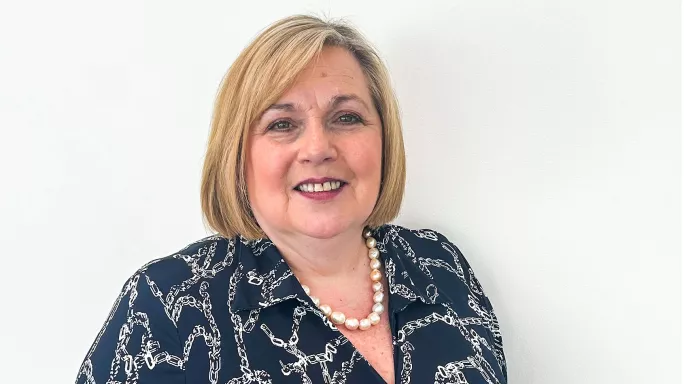What is the future of school inspection in Scotland?

The process of school inspection in Scotland is to be fundamentally reviewed, the country’s inspectorate has revealed. Interim chief inspector Janie McManus has spoken exclusively to Tes Scotland about her plans, which she is notifying education directors of today.
McManus, who was appointed to the role in November, wants to make school inspection “world class” and promises that the review will be “bold” and “ambitious”.
But how does her announcement fit into the story of Scottish school inspection in recent times? Are inspectors’ priorities about to change? And will schools have a different role to fulfil?
As far as McManus is concerned, certainly, genuinely meaningful change lies ahead.
Not just ‘tinkering’ with school inspection
“The review is not just about tinkering around the edges, and it’s not just about refining things. It’s about enhancing the impact we have on children and young people,” she says.
McManus explains that the review will be separate to the Scottish government’s ongoing education reform agenda - the slow pace of which has led to considerable frustration within the teaching profession. It is something “we want to do as an inspectorate and I want to do in my capacity as chief inspector”, she says.
The government announced in June 2021 that it would replace Scotland’s exam body, the Scottish Qualifications Authority (SQA), and split Education Scotland’s dual inspection and curriculum development functions to create an independent inspectorate and a new education agency. Critics said having one agency responsible for both roles was like “marking your own homework”; a view previously acknowledged by the former chief inspector, Gayle Gorman.
- Scotland’s new chief inspector of education announced
- Inspection tips for middle leaders in Scottish schools
- Should we get rid of school inspections for good?
However, reform has stalled in recent times and the date for delivering the new organisations was pushed forward a year by education secretary Jenny Gilruth.
The new bodies were expected to become operational this year but it is now expected that this will happen in 2025 at the earliest.
Through the review, McManus says, HMIE (or HM Inspectorate of Education, the historical title still used to refer to the inspection function of Education Scotland) will be seeking views on its model of inspection and the framework it uses to inspect schools. The follow-ups that take place after inspections and the reports that it writes on its findings are also to be closely scrutinised.
Schools in Scotland are not inspected on a cyclical basis; rather, a sample of at least 120 schools is inspected every year.
In Scotland in 2023-24, McManus says, HMIE is on track to inspect a total of 250 schools (out of just over 2,500 schools in the country across all sectors) with reviews typically lasting either a week or three days.
However, the current approach means that a Scottish school can go for long periods without being inspected - a 2021 report showed that a handful of schools had last had a full inspection as far back as 2004. This is something the government has come under fire for.
Nothing off the table in inspection review
When asked specifically whether the frequency of inspection will be under review, McManus says nothing is off the table. She wants to have “open and honest discussion and dialogue”.
McManus says the main driver for the review is ensuring that the inspectorate is “relevant”, “adaptable” and “meets the needs of the education system and children and young people”.
She wants the inspectorate to demonstrate the same commitment to “continuous improvement” that it demands of schools.
“I really want to foster a culture of continuous improvement, active dialogue and collaboration,” she says. “I’m really committed that as an inspectorate we are also accountable for what we do and that we are also transparent.”

However, McManus does say that the current inspection framework - the fourth edition of How Good is Our School - is in need of an update. It has been in place since 2015, when her predecessor’s predecessor, Bill Maxwell, was in post (he retired in 2017), and she sees “an appetite” among headteachers to review the framework.
‘Supportive and rigorous’ inspection
McManus adds that HMIE’s inspection methodology will also be examined, to make sure it is “both supportive and rigorous”.
The critical need to strike the right balance with school inspections has come under intense scrutiny recently, in the wake of the death of English headteacher Ruth Perry.
Ms Perry took her own life in January 2023 after an Ofsted inspection report downgraded her school, Caversham Primary School in Reading, from the watchdog’s highest grade to its lowest over safeguarding concerns. An inquest found that her “mental health deterioration and death was likely contributed to by the Ofsted inspection”.
The coroner said that “parts of the Ofsted inspection were conducted in a way which lacked fairness, respect and sensitivity”. And Ms Perry’s sister, Professor Julia Waters, has criticised “dangerous” one-word school inspection ratings.
In Scotland, school inspection does not result in one-word ratings for schools. Instead, schools are inspected and rated across a number of quality indicators.
The Ruth Perry case has stirred memories in Scotland of Irene Hogg, a headteacher who took her own life in 2008 following an inspection of her primary school in Galashiels, in the Scottish Borders. Subsequently, the focus of inspection in Scotland shifted, with less emphasis placed on a school’s performance by traditional external grading based on inspectors’ visits and more emphasis on collaboration between school and inspectorate to improve the quality of self-evaluation.
Graham Donaldson, the senior chief inspector of education at the time - who is now playing a leading role in Welsh education reform - said in 2008 that the changes had been in the pipeline for a long time and had not been influenced by Irene Hogg’s death. He wanted schools to “see inspection as constructive, something which works with them”.
Yet inspection is still widely perceived to be something that is done to schools, rather than with them, and teachers and heads continue to feed back that there is too much focus on grading of schools.
‘Demoralising’ rating of schools
In the consultation conducted by Professor Ken Muir to inform his 2022 report on how to take forward reform of the SQA and Education Scotland - including separating out the inspection function - respondents said they felt that “the current system focused too much on ‘grading’ an establishment, which could be demoralising and was not compatible with an empowered and supportive system”.
Respondents called for the focus to “be on the narrative of the report”. They wanted “a ‘critical friend’ approach used to ensure ongoing advice and support for improvements, as well as more sharing of good practice and engendering a culture of encouragement”.
Overall, research for the Muir report found that there was support for school inspection, with almost two-thirds of respondents (61 per cent) agreeing that “independent inspection has an important role to play”. Equally, however, the respondents wanted a “fundamental review” of inspection “to make it more supportive, creative and formative”.
One primary headteacher said: “A move towards a body which is overly scrutinous and critical would be damaging to the system and create a culture of fear. Recognising the journey and progress is crucial.”
McManus gives the impression that she is on the same page.
She likes the idea of telling “the stories of education - what’s happening in school”, taking into account “the context of the school” and what the school is “dealing with”.
Understanding the ‘journey’ of a school
McManus adds: “It’s really important we understand that journey of the school, because then we can understand the areas of improvement and the areas for development and the strengths as well.”
Having started her career at Garrowhill Primary in Glasgow, McManus moved on to become a senior teacher at Condorrat Primary in Cumbernauld, North Lanarkshire. She was then headteacher at Auchinloch Primary and Langloan Primary in North Lanarkshire, joining the inspectorate in 2006 and going on to become strategic director of scrutiny at Education Scotland. She was appointed interim chief inspector in November 2023.
“I’m really committed that as an inspectorate we are accountable for what we do and we are also transparent”
As an inspector, she went through the process in which HMIE lost its independence and merged with curriculum development body Learning and Teaching Scotland to become Education Scotland in 2011 - a move that attracted considerable criticism from the moment it was announced in 2010.
Now, less than a decade and a half later, she finds herself charged with extricating HMIE from Education Scotland and giving the body its independence back.
She wants to increase HMIE’s “influence and our voice in the system”. She says that having an independent inspectorate that is perceived to operate “without fear or favour is really important”.
‘Variability’ in standards of classroom practice
A strength of the current Scottish education system is that there is “outstanding” and “sector-leading” practice taking place in schools and classrooms, McManus says. The problem, she adds, is that there is “too much variability”. She says that “every child, no matter where they live, should be getting the same high-quality learning experience”.
One aspect of this variability was raised in a widely discussed Tes Scotland exclusive last week, highlighting an Education Scotland report saying that a lack of a “common base of knowledge and skills” in Scotland’s Curriculum for Excellence could have “potential consequences for attainment and understanding”.
McManus acknowledges that HMIE has a crucial role to play in smoothing out such peaks and troughs of learning in schools across Scotland.
“Sharing our findings, I know that’s an area we need to improve on - how we share our findings, how quickly we share our findings in order that we can really support the education system.”
It all sounds promising and in tune with Muir’s finding that teachers and heads want a renewed focus on improvement, support and collaboration. He found that the existing approach to inspection was “sometimes seen as…punitive”.
That McManus is willing to listen is undoubtedly a positive.
One key question, however, is the extent to which she will get the opportunity to see through her review and actually realise the changes to inspection that it finds are needed.
Her contract is for just 18 months and although there is scope for it to be extended, her remit is clear - she is to lead HMIE “during the current period of reform until the establishment of the new inspection body”.
In recent years teachers and school leaders, as well as pupils and parents, have taken part in an often bewildering array of concurrent consultations.
A review, therefore, is all well and good - but the glut of other reviews of Scottish education that have preceded it have had a mixed reception. More interesting will be the tangible action that stems from calls for change to the inspection process.
Can teachers and school leaders expect a genuinely fundamental overhaul with a clear impact on practice in schools, or is it more a case of reconfiguring the status quo? For now, the inspectorate is still not fully committed either way.
Emma Seith is senior reporter at Tes Scotland. She tweets @Emma_Seith
For the latest Scottish education news, analysis and features delivered directly to your inbox, sign up to Tes magazine’s The Week in Scotland newsletter
You need a Tes subscription to read this article
Subscribe now to read this article and get other subscriber-only content:
- Unlimited access to all Tes magazine content
- Exclusive subscriber-only stories
- Award-winning email newsletters
Already a subscriber? Log in
You need a subscription to read this article
Subscribe now to read this article and get other subscriber-only content, including:
- Unlimited access to all Tes magazine content
- Exclusive subscriber-only stories
- Award-winning email newsletters
topics in this article



